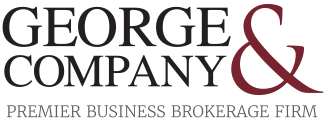508-753-1400
View Blog Posts by Category:
View Blog Posts Tagged with:
Common Areas Overlooked During Due Diligence

While withholding information is not something a trusted seller would do, some things can slip through the cracks every now and then. However, these can range from small details to larger items that can have greater implications on your business if not dealt with. The due diligence process can either make or break a good relationship between the buyer and seller. If one party performs due diligence properly, then the relationship is sustained and both parties walk out with a successfully closed deal. If one party does not deliver on the due diligence process, then the other could be stuck with a business that is in serious trouble. Be sure to keep a close eye on these five important aspects of the due diligence process to ensure your buyer or seller is delivering on their word.
Consistency of Financials
One of the most noticeable red flags in a business is a sharp increase in profitability in the year or two leading up to a sale. Sellers will often scale back their expenses or at least shift them around to increase the profitability of the business in preparation for a sale.
Lease Details
One of the most overlooked assets of any business is its lease. Leases can be problematic if they aren’t automatically transferable to the new owner or, if the landlord isn’t comfortable with the buyer’s credit rating, he can double the rent or even refuse to accept the new tenant altogether.
Reliability of Customers
While everything about the financials of your new business might look clean, they could be at risk because of the financial state of the business’s customers. With so many companies struggling these days, it’s worth digging deeper into who your customer base might be and how the economic downturn might be affecting their ability to pay their bills.
Employee Stability
If the business you want to buy has employees, it’s important to understand who the top performers are and whether you have any guarantee that they will remain with the company after you take over. Make sure you don’t overlook the current owner’s role in the business.
Inventory
The last component of the due diligence process is inventory — something the seller and buyer do together either the night before or the morning of the close. Any differences in inventory levels from their earlier estimates are typically settled in cash at the time of the close.
Due diligence is the care that a reasonable person exercises to avoid harm to other persons or their property. Buying or selling a business will most likely be the largest transaction that you will encounter in your life. If you need expert assistance during the M&A process, contact the well-seasoned professionals at George & Company.
